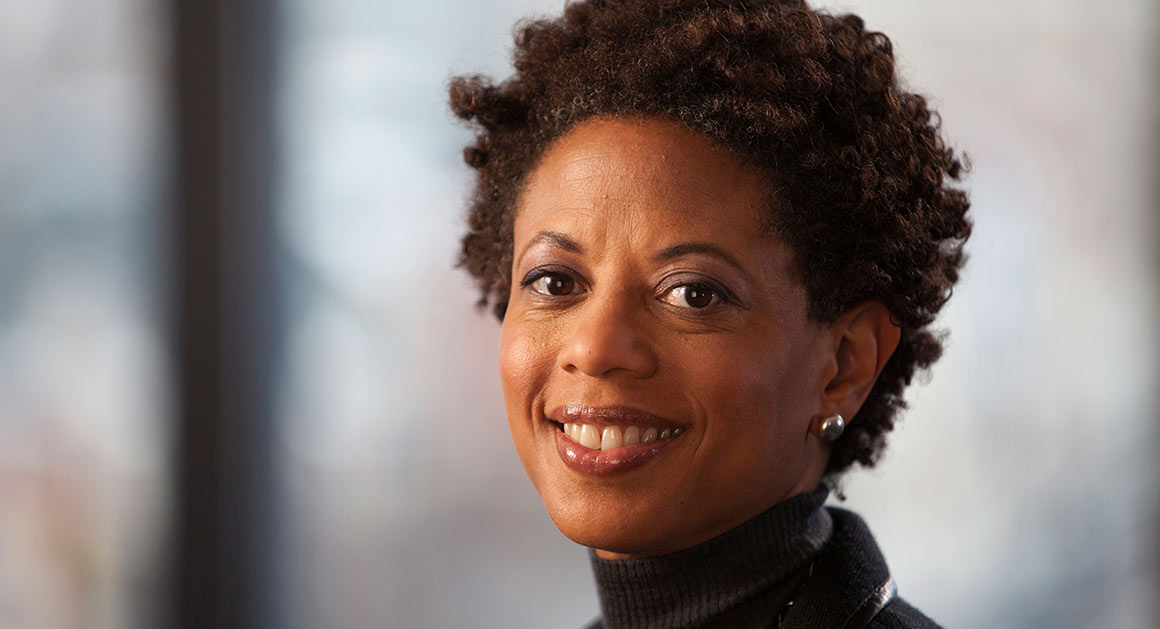When you think of Thomas Jefferson, what comes to mind? Do you recognize him as a founding father of America and his hand in the creation of the Declaration of Independence? Do you acknowledge his role as the third president in U.S. history? How about his ownership of hundreds of slaves throughout his lifetime?
PHOTO: Virginia.org
Generations later, Jefferson’s Monticello estate in Virginia is still open to the public thanks to the Thomas Jefferson Foundation, Inc. The foundation is a nonprofit organization "which owns over 2,500 acres of Jefferson's 5,000-acre plantation." Recently, the foundation elected a new vice chairman, one who is changing the dynamic of the organization’s history.
PHOTO: Politico
Melody Barnes, Virginia native and history lover, was named vice chairman of the Thomas Jefferson Foundation on June 15th and, according to Glamour, after serving a two-year term, Barnes will become the chairman of the foundation. Not only is she the first black woman to hold this position but she is the first black person, man or woman, the take on this role.
"Ironically, I went to Thomas Jefferson High School, and I received the Jefferson Book Award as a student," she told Glamour. "As an African American woman from Virginia, it's important for me to be (at the Thomas Jefferson Foundation) because for so long, black people in Virginia have not had their story told, (and) have not been asked to tell their story."
One story that has begun to be told at Monticello is the story of Sally Hemings, a black woman who was enslaved at Monticello and eventually bore six children by Jefferson. Presently, an exhibit dedicated to Hemings and her unsung story titled "The Life of Sally Hemings" is on display. The multimedia exhibit is based on the recollections of Sally Hemings's son, Madison. According to Glamour, the exhibit is set in the windowless room where Hemings likely lived, worked, and raised her children. Barnes said the foundation ensured the exhibit was created "in a very thoughtful, detailed way."
PHOTO: Washington Post
"For too long, the truth about Thomas Jefferson and Sally Hemings and their children has been denied. The importance of understanding all we could about her life, and the lives of others enslaved there, has been covered up over for years,” Barnes explained.
In addition to Hemings' role in Jefferson’s life at Monticello, Barnes shared with Glamour that going forward women’s lives at the estate will continued to be explored.
"One thing that hasn't been discussed much (is) understanding the lives of women at Monticello, including his wife Martha, who died fairly young, and his daughters… So we are going to be leaning into that type of work as well," Barnes told Glamour.
Although Barnes’ new position is stirring up conversations, she is no stranger to the world of politics, current and historic. At the University of Virginia’s Miller Center, Barnes serves as a senior fellow and Compton Visiting Professor in World Politics and, from 2009 to 2012, she was an assistant to President Barack Obama and director of the White House Domestic Policy Council. Based on her personal and professional knowledge, her experiences have led her to where she is today.
PHOTO: Monticello (Shannon LaNier and Madeline Yurkoski – descendants of Madison Hemings)
23-year-old Madeline Yurkoski is a direct descendant of Madison Hemings and said growing up she knew the story of Hemings' lineage.
"We are related through my mother’s grandfather’s side," Yurkoski began. "I was raised my whole life knowing it; my mom told me the story, so I always knew I was descended from Sally Hemings."
In terms of Sally Hemings’ exhibit, Yurkoski said she takes pride in the exhibit and is happy it is showcasing her family history with dignity. As far as the timing of the exhibit’s creation, she said the time is right and seeing Barnes in a leading role within the foundation is something she never thought she would witness; but she is happy to see it and is proud.
Another Hemings descendant, Gayle Jessup White, shared with Glamour the estate overall puts America’s worst and best moments on display.
"For me as a black woman, it's a proud moment. Monticello is a microcosm of America, it always has been," says White. "It represents America at its best and worst. What Melody represents is the growth and development at Monticello, which mirrors the evolution of our country's values and mindsets. We're still striving, obviously, but we as Americans are resilient."
Ready. Set. Boss. Our daily email is pouring out inspiration with the latest #BlackGirlBossUp moments, tips on hair, beauty and lifestyle to get you on track to a better you! Sign up today.
